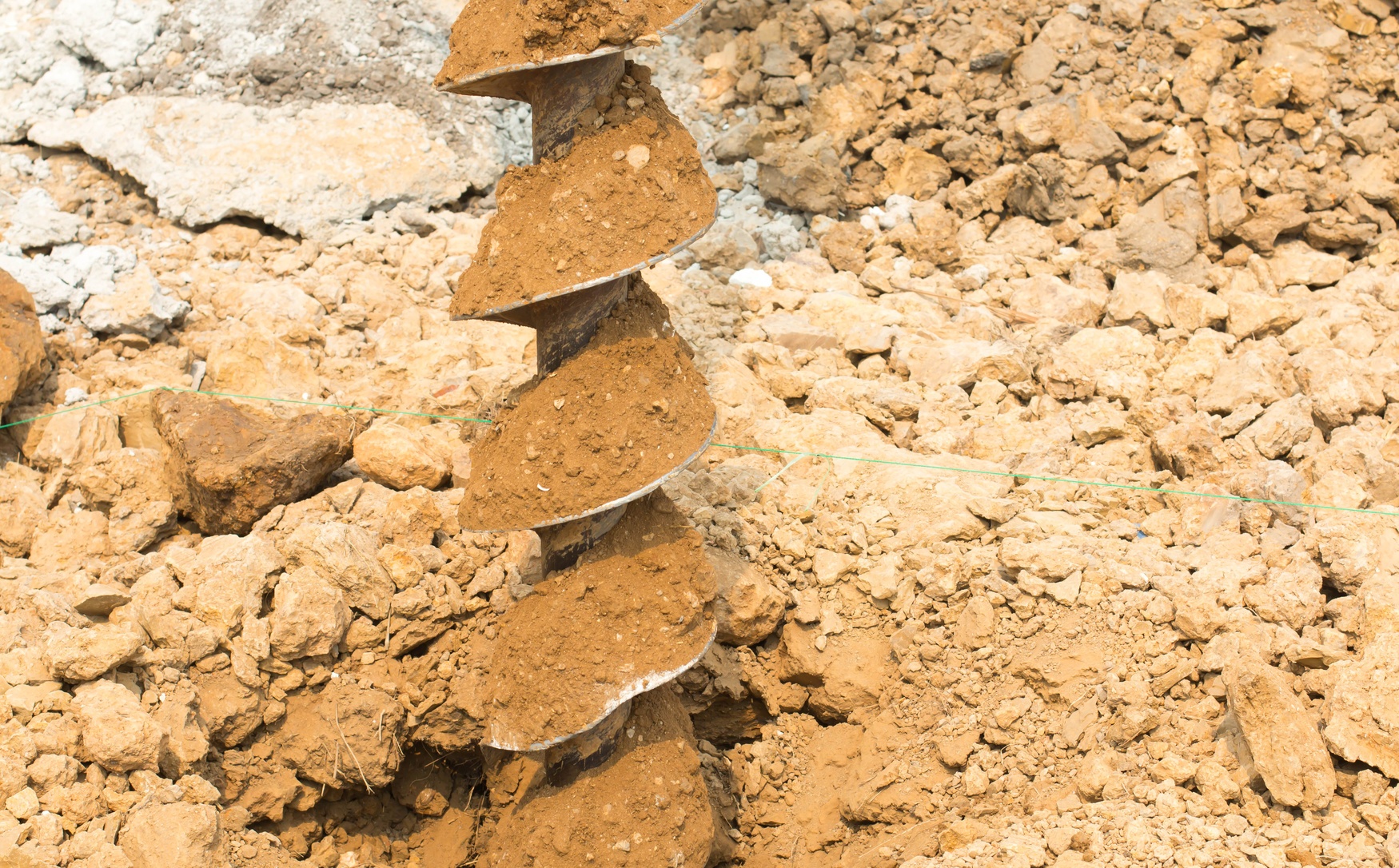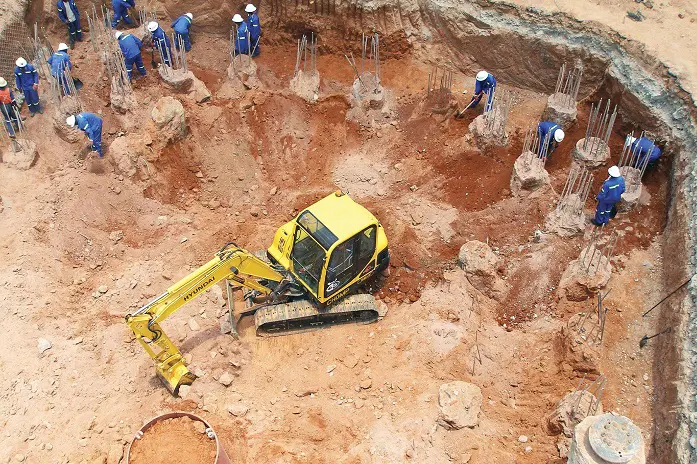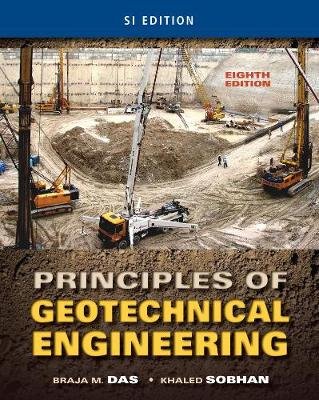Discovering the Function of a Geotechnical Engineer Description and Responsibilities
Discovering the Function of a Geotechnical Engineer Description and Responsibilities
Blog Article
The Significance of Geotechnical Engineering in Dealing With Environmental Challenges and Enhancing Building Security
Geotechnical engineering offers as a foundation in the junction of environmental stewardship and construction safety and security, providing crucial understandings into the actions of soil and rock under numerous problems. By carrying out tactical website examinations and customized mitigation actions, geotechnical designers play a crucial function in guarding both human lives and ecological stability.

Role of Geotechnical Engineering
Geotechnical engineering plays an essential role in the style and construction of infrastructure by addressing the actions of soil and rock materials under numerous problems. This field of engineering is important for understanding the communication in between structures and the ground, that includes identifying the load-bearing capacity of soil, assessing security, and forecasting possible settlement or failure.
Geotechnical designers are in charge of performing site investigations, which include sampling and screening soil and rock to collect data on their physical and chemical residential properties. This info is crucial for developing foundations, retaining wall surfaces, and other earth-retaining frameworks that make sure security and longevity. Geotechnical engineering informs the choice of appropriate building and construction methods and products, thereby decreasing dangers associated with soil actions.
Furthermore, the assimilation of geotechnical engineering concepts right into city planning and ecological administration is essential for resolving difficulties such as ground contamination and groundwater monitoring. By understanding geotechnical variables, engineers can establish lasting services that boost the strength of infrastructure against all-natural hazards, while likewise promoting ecological stewardship. Inevitably, the role of geotechnical engineering is crucial for achieving risk-free, durable, and ecologically aware building and construction practices.
Soil Disintegration Reduction
Dirt erosion positions a substantial hazard to both environmental stability and infrastructure honesty, affecting roughly 24 billion heaps of fertile soil lost yearly worldwide. This phenomenon is worsened by aspects such as logging, urbanization, and inadequate farming techniques. Geotechnical design plays a pivotal function in establishing efficient soil erosion mitigation techniques that secure both the setting and building and construction tasks.
One strategy requires the execution of disintegration control techniques such as plants growing, which supports soil through root systems. Additionally, the construction of keeping balconies and walls can efficiently lower surface area overflow and secure prone areas from erosion. Proper drainage layout is additionally critical; it decreases water build-up and directs excess runoff away from critical frameworks.
Additionally, geotechnical engineers use dirt stablizing strategies, such as the application of geotextiles and eco-friendly floor coverings, to enhance dirt cohesion and prevent destruction - about geotechnical engineering. Regular surveillance and evaluation of erosion-prone sites allow timely treatments, making certain long-lasting sustainability. By integrating these approaches, geotechnical engineering not just reduces the effects of dirt erosion yet likewise adds to the durability of framework against ecological challenges, inevitably fostering a more secure and a lot more sustainable developed atmosphere
Groundwater Defense Methods
Groundwater offers as a crucial source for drinking water, farming, and industrial processes, making its defense necessary for environmental sustainability and public wellness. Efficient groundwater defense methods are crucial in minimizing contamination threats and making certain the long life of this source.

Regular monitoring of groundwater top quality is also essential, making it possible for early discovery of contamination resources and promoting prompt remediation initiatives. Employing innovative innovations, such as geophysical studies and remote noticing, help in determining possible dangers to groundwater reserves.
Moreover, public education and stakeholder involvement are essential, cultivating neighborhood assistance for groundwater protection campaigns. geotechnical specialist. By integrating regulatory procedures, technical advancements, and area involvement, we can produce a comprehensive framework that safeguards groundwater resources while advertising lasting development and visit here building techniques
Landslide Risk Administration
Landslides posture substantial risks to both human safety and security and infrastructure, making effective danger monitoring strategies necessary. Geotechnical engineering plays a vital role in determining, examining, and mitigating landslide threats. A comprehensive understanding of slope stability, soil auto mechanics, and hydrology is crucial for creating reliable threat monitoring plans.
The first action in landslide risk management involves extensive website examinations, which consist of geological mapping and dirt screening. These examinations aid designers review the possibility for landslides by recognizing critical factors such as slope angles, soil composition, and water content. Using sophisticated technologies such as remote sensing and geophysical surveys can enhance the precision of these analyses.
As soon as dangers are determined, proper mitigation procedures can be executed. These may include design remedies such as preserving wall surfaces, drainage systems, and slope stablizing strategies. Keeping track of systems ought to be established to detect indications of ground motion and changes in water levels, allowing for aggressive interventions.

Enhancing Construction Security
Building sites typically provide a myriad of dangers that can endanger employee security and job stability. Geotechnical engineering plays a vital function in enhancing construction safety by providing crucial understandings right into subsurface conditions. With extensive soil and rock evaluation, geotechnical designers can determine potential risks, such as dirt instability, groundwater problems, and seismic vulnerabilities, which may endanger the safety and security of building activities.
Applying geotechnical options, such as appropriate foundation layout and making use of keeping structures, minimizes these dangers dramatically. These remedies not just guarantee the security of the frameworks being built yet likewise create a more secure working setting for building workers. Furthermore, rigorous surveillance and evaluation of website conditions throughout the building and construction process are critical. Using innovative technologies like ground-penetrating radar and inclinometer systems makes this website it possible for real-time data collection, permitting for timely interventions when dangers are discovered.
Furthermore, promoting a culture of security via training and adherence to developed safety and security protocols further enhances building site security. By incorporating geotechnical expertise into the preparation and execution stages, construction projects can achieve higher security requirements, inevitably shielding employees and making certain effective task conclusion.
Final Thought
In conclusion, geotechnical design serves as an essential self-control in promoting and tackling ecological challenges building safety. Via effective soil erosion reduction, groundwater defense methods, and landslide risk monitoring, geotechnical engineers contribute to the growth of resilient infrastructure.
Geotechnical design serves as a keystone in the junction of ecological stewardship and building safety and security, giving important understandings into the habits of dirt and rock under various problems. Geotechnical design educates the choice of proper construction techniques and products, thereby lessening threats associated with soil behavior.
Geotechnical design plays a crucial role in establishing reliable soil erosion mitigation methods that guard both the setting and construction jobs.
Additionally, geotechnical designers use soil stabilization techniques, such as the application of geotextiles and naturally degradable floor coverings, to improve dirt communication and protect against degradation. With detailed dirt and rock evaluation, geotechnical designers can recognize possible risks, such as dirt instability, groundwater problems, and seismic susceptabilities, which might endanger the safety of construction tasks.
Report this page